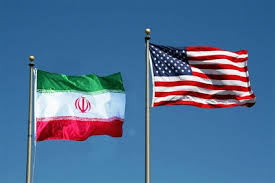World
‘Trump’s phone call to Mexican President was constructive’
Washington: A phone call between US President Donald Trump and his Mexican counterpart Enrique Pena Nieto last week was constructive and not confrontational, Mexico’s Foreign minister told CNN in an interview. Videgaray said during the conversation on January 27, the two leaders agreed on more points than they disagreed on, he said in the interview on Thursday. “It was not a confrontational call,” he said. Regarding the border wall issue, Videgaray said: “It’s very clear, we have a significant difference and the presidents have a significant difference.” “And it’s … well-known, but they agreed that they would not continue to publicly argue about that, because there are so many other things that we need to work on.”
Videgaray said he talked to US Secretary of State Rex Tillerson on Thursday. The Foreign Minister also said that his nation was very willing to discuss the North American Free Trade Agreement (NAFTA) with the White House. “We’re absolutely open to making NAFTA better.” “This does not have to be a negotiation in which one of the countries loses…We can make it a very good deal for both countries,” he added. Pena Nieto had cancelled a meeting with Trump that had been set for this week after renewed tensions erupted last week over Trump’s plan to build the border wall.
“Unless Mexico is going to treat the US fairly, with respect, such a meeting would be fruitless and I want to go a different route,” he said in prepared remarks. “We have no choice.” Trump had tweeted that it would be better to skip the meeting if his Mexican counterpart continued to insist Mexico would not pay for the wall. While saying that Mexico paying for the wall is “totally unacceptable,” Videgaray said his ministry would take a cooperative stance toward Mexico’s northern neighbour and largest trading partner.
World
Lockdowns in China Force Urban Communities to Defy Censorship and Vent Frustration Online

Shanghai’s rich middle class is leading a wave of online dissent over the strict and prolonged lockdowns imposed in various parts of the country. Chinese internet censorship is struggling as patience is wearing thin in many urban centers, coming up with creative forms of online protests.
Social Media Posts Revealing Lockdown Tension in Shanghai
Drawn-out lockdowns are nothing new in China as authorities insist with the nation’s zero-Covid policy since the start of the pandemic. Currently over This time around, however, metropolitan areas like Shanghai are increasingly difficult to keep quiet, given that its more than 25 million residents have seen weeks of total isolation along with food shortages and many other service interruptions.
Dozens of towns and reportedly over 300 million Chinese citizens have been affected by lockdowns of different severity. As expected, urban netizens have been most outspoken over their difficulties by finding creative ways to get around state censorship and bans placed on topics, news comments and spontaneous campaigns.
Shanghai residents have been using mobile proxies and hijacking seemingly unrelated hashtags to talk about healthcare issues, delivery failures and the overall severity of their situation. The “positive energy” that the Chinese government wants to transmit during the recent prolonged series of lockdowns does not come naturally to those counting food supplies and online censors are working hard to filter words, trending topics and undesired social media sharing.
WeChat groups and message threads are under constant monitoring. Posts questioning the zero-Covid approach have been quickly deleted, including by leading Chinese health experts like Dr. Zhong Nanshan. Video footage is soon censored and protests and investigations are quickly made to disappear.
Where this has not worked, officials have exposed banners with warnings and outright threats like “watch your own mouth or face punishment”, while drones have been patrolling the city skies. Yet, if anything, this has led to further tensions and unspoken confrontation with Shanghai’s educated and affluent middle class.
Creative Online Solutions Harnessing Civic Energy
Announcements by Chinese social media that they would be publishing the IP addresses of users who “spread rumors” have not helped either. Tech industry research has shown that much of Asia’s tech-savvy population has a habit of using mobile proxies and other privacy tools, quickly finding workarounds to browse the internet freely and talk to the world about the hottest topics.
The sheer volume of forbidden posts is already a challenge for the very censorship system, experts explain. Unable to track all trending hashtags, state workers overlook topics that speak about the US, Ukraine or other popular news. Linking human rights elsewhere to their situation, Chinese online dissidents establish their informal channels and “hijack” the conversation to share personal or publicly relevant information about the Covid suppression in their town.
Sarcastic and satirical posts still dominate. Others hope to evade the censors by replacing words from famous poems or the national anthem. One thing is certain – social media, when harnessed with the right creativity, has proven its ability to mount pressure on the government in even some of the most strictly controlled tech environments like China.






















